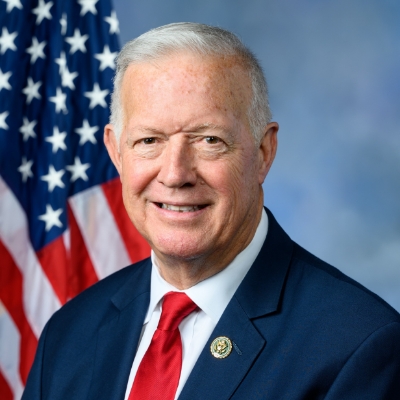- Home
- About
- Contact
- Services
- Art Competition
- Community Project Requests
- Congressional Commendations
- Flags
- Assistance with a Federal Agency
- Internships
- Military Academy Nominations
- Passports
- Presidential Greetings
- Tours and Tickets
- The Congressional Award
- Grants
- Water Resources Development Act 2026
- Additional Services and Resources
- Media
- Legislation
- Issues
- Resources
 U.S. REPRESENTATIVE
Randy Weber
Proudly Serving Texas' 14th District
U.S. REPRESENTATIVE
Randy Weber
Proudly Serving Texas' 14th District
Press Releases
Rep. Weber Introduces Bipartisan Legislation To Strengthen Coastal Revenue Sharing Program
Washington,
September 29, 2022
Washington, D.C. - Today, U.S. Reps. Randy Weber (TX-14) and Lizzie Fletcher (TX-07) introduced the bipartisan Reinvesting in Shoreline Economies and Ecosystems (RISEE) Act, which would protect coastal communities by creating a new stream of funding for coastal infrastructure and flood resiliency projects. While Weber and Fletcher are leading the bill as representatives from the Gulf of Mexico region, U.S. Reps. Elaine Luria (D-VA) and Tom Rice (R-SC) are also original cosponsors, representing the Atlantic states. This bill mirrors identical legislation introduced in the U.S. Senate. “The Texas Gulf Coast is home to millions of people, countless homes and jobs, and numerous refineries. The RISEE Act would advance critical restoration and resilience projects to ensure our coastline has the necessary investments to help protect against future storms,” said Rep. Weber. “This is vital for the Gulf Coast region and our nation.” “Flooding has been acutely felt across Texas’ Seventh Congressional District, and Houstonians know firsthand that even a small amount of water can cause significant damage,” said Rep. Lizzie Fletcher. “The RISEE Act will provide a more permanent funding source to make much-needed investments in our community to help protect it from flooding and hurricane damage, and I was glad to partner with Congressman Rice, Congressman Weber, and Congresswoman Luria to introduce this legislation.” Current law requires all revenues generated from offshore wind leases and production beyond six nautical miles from states to be sent to the U.S. Treasury. The RISEE Act would send 50 percent of offshore wind revenue to states within 75 miles of offshore wind farms. By sharing offshore wind revenues with nearby states, the RISEE Act offers incentives for state and local governments to facilitate successful siting processes and to get turbines up and running. State funds from offshore wind revenue could be used:
Additionally, 37.5 percent of offshore wind revenues would serve as a further dedicated funding source for the National Oceans and Coastal Security Fund (NOCSF). This fund provides competitive grants to coastal communities to respond to coastal erosion and sea level rise, restore coastal habitat, and make improvements to coastal infrastructure. Gulf of Mexico energy royalties are currently shared by four Gulf energy producing states (Alabama, Louisiana, Mississippi, and Texas), conservation programs, and the U.S. Treasury. The RISEE Act will allow for more equitable resource sharing between states, the federal government, and conservation programs. The RISEE Act would also amend the Gulf of Mexico Energy Security Act (GOMESA) to create a new stream of funding by equalizing mineral rights revenues for offshore leases and devoting that money to coastal resiliency and flood mitigation projects. The bill amends GOMESA by:
|
